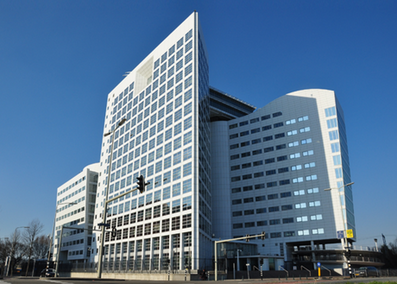
In 2011, then ICC Registrar Silvana Arbia stated:
“The Court relies on witnesses, and in turn they rely on us to ensure that they are not harmed as a result of their interaction with us. We therefore have to ensure that their interaction with the Court is a successful one.”
This statement makes clear the ICC’s commitment to protecting witnesses and encouraging them to participate in proceedings. There is no doubt that a key element of ICC witness management is ensuring adequate protection, support, and assistance to witnesses. Beyond borrowing from the ad hoc tribunals’ witness protection schemes, the ICC has pioneered the development of a more comprehensive witness protection, support, and logistics program.
Like any court, the ICC’s credibility is tied to its adequate protection of persons who testify in its proceedings, which is why the Court already allocates nearly $10 million of its roughly $160 million yearly budget to its Victims and Witnesses Unit (VWU). However, with the growing number of cases before the Court and States Parties’ reticence to expand the ICC’s budget, the long-term feasibility of the ICC’s witness protection program will need to be reviewed.
The Court also needs to work on tackling state cooperation problems, which are currently the most pressing issue with regard to witness protection. States Parties need to provide security for all people within their jurisdiction to ensure that any potential witness is not harmed by their interaction with the Court. This, of course, rings truer for states that have an established rule of law. In situations like Kenya, where we have seen little cooperation, there is a need to increase outreach both nationally and locally. In the Kenya cases, the prosecutor has publicly stated that the scale of witness interference that the Office of The Prosecutor (OTP) encountered in Kenya has been unprecedented. However, the OTP is working together with the VWU to address this, and the OTP will continue to seek authorization from the Judges for additional witness protection measures there. The OTP also has the option to request the Judges to refer Kenyan non-cooperation to the Assembly of States Parties (ASP). Regarding the possibility of such a request by the OTP, the Court has answered that all options and legal remedies under the Statute are being carefully considered and appropriate action will be taken in due course.
Several recommendations have been proposed to improve state cooperation on witness protection at the Court. First, the Court has been urged to streamline and systematize cooperation requests to states. The Court is further encouraged to develop a formal mechanism or focal point for defense requests for state cooperation. Moreover, more states are encouraged to ratify the Agreement on Privileges and Immunities of the ICC (APIC), which more clearly elucidates the scope of the privileges and immunities afforded to witnesses.
Lastly, the Court should continue to pursue avenues to engage with non-States Parties with functional witness protection programs that are willing to cooperate with the ICC and receive relocated witnesses. This could be done through ad hoc agreements as provided in the Rome Statute’s cooperation provisions.
There are also several steps the Registry can take to protect and encourage witness participation in ICC proceedings. First, the Registry should review the management and operational capacity of the VWU and to ensure that the Unit has the human, technical, and financial resources necessary to carry out its functions. Second, the Registry should also establish a mechanism to assist the defense teams with assessing the protection needs of witnesses and making referrals to the VWU when necessary. Third, the Registry should hold adequate consultation with defense teams to determine their needs prior to adopting policies or procedures which impact defense witnesses.
In short, although the ICC has been successful in its first decade of operation in protecting, assisting and preparing persons who testify before it, the Court and its States Parties will need to review its approach to witnesses in order to further protect and encourage witness participation in its proceedings.
This piece is part of HU’s ongoing guest series on Africa and the International Criminal Court. Follow the discussion at https://humanityunited.org/icc_series/.